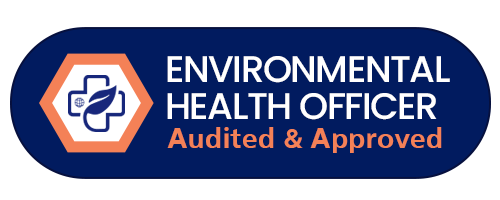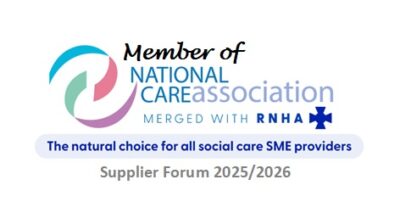How to become a midwife: a rewarding career in healthcare
How to become a midwife: a rewarding career in healthcare
If you’re keen to work in the healthcare sector and passionate about pregnancy and childbirth, a career as a midwife could be perfect for you.
Midwives play a critical role in supporting expectant mothers, their babies and their families, providing expert care during pregnancy, childbirth and the postnatal period.
If you’re interested in becoming a midwife, here’s everything you need to know, including the qualifications you’ll need, the opportunities for career progression and how online healthcare training courses can support midwives’ CPD training.
What do midwives do?
A midwife provides essential care to mothers and their babies. Theirs is a multifaceted role that entails many duties, including:
- Providing a primary point of contact for expectant mothers
- Providing care during pregnancy, childbirth and the period immediately after delivery
- Monitoring the health of pregnant women and their babies
- Delivering babies and performing various tests and procedures immediately after birth
Midwives must also be comfortable collaborating with an extensive team of healthcare professionals. This could include doctors, consultants, specialists and social workers.
Some of the personal qualities needed to become a midwife include:
- An interest in pregnancy, childbirth and babies
- A caring and sensitive attitude
- Empathy and understanding
- A calm, reassuring, non-judgemental manner
Midwives must be comfortable working hands-on with mothers and babies. They also need to have good time management skills and be able to keep accurate, confidential patient records.
The role of a midwife can be demanding and involves long and irregular hours. They will often be required to work nights, weekends and bank holidays.
Where do midwives work?
Midwives work in diverse healthcare settings, delivering babies in hospitals, midwifery-led maternity units and even people’s homes. They may also provide care in GP surgeries and community health centres.
Challenges and rewards of the job
Being a midwife is an intensely rewarding career that demands high levels of commitment and the ability to work under pressure. It’s a challenging and physical role that requires you to be able to deal with complex situations, difficult individuals and distressing circumstances.
However, the fulfilment you can gain from working closely with mothers and newborns at this special time is unparalleled. It will give you a unique opportunity to be part of one of the most significant times of a person’s life.
As a midwife, you will find plenty of opportunities for career progression and specialisation. These could include clinical practice positions, management and education roles, research jobs and more.
How to become a midwife
You’ll need personal commitment, training and qualifications to become a midwife. If you would like to train to be a midwife, here’s a step-by-step guide to becoming a midwife.
What qualifications do you need to become a midwife?
You will first need to gain a degree in midwifery from an approved educational institution (AEI) approved by the Nursing and Midwifery Council (NMC).
Applicants will generally need:
- 2 or 3 relevant A levels, including biology (or equivalent qualifications)
- 5 GCSEs (grades 9-4 or A*-C), including English language, maths and science
Degree courses for midwives typically take three years of full-time study. There is also a two-year fast track midwifery course that may be suitable for individuals with a degree in a related subject, such as adult nursing.
A midwife degree apprenticeship could provide an alternative pathway into the career, and there is also a pathway through the armed forces (RAF, Royal Navy and Army).
Registration
Once you have completed your midwife training, you’ll need to register with the NMC to practise as a midwife. Your registration must be renewed every three years, and the process is known as revalidation.
Work experience and volunteering
Getting some practical experience through work or volunteering is a good idea.
Roles such as maternity assistant or nursing associate can provide valuable insights into the career. Shadowing an experienced midwife may be a good way to learn more about the role and be sure that it’s the right career path for you.
Volunteering at your local NHS trust, a charity, or getting a placement in a private clinic could also help to support your job applications by showing your commitment to the profession.
The importance of CPD courses for Midwives
Midwifery is a rapidly evolving field, so it is vital for midwives to keep up to date with the latest midwifery standards, procedures and laws. For this reason, continuing professional development (CPD) is a mandatory requirement for NMC revalidation. Relevant CPD training can enhance your skills, help you to meet legal requirements and open up even more career opportunities.
Studying CPD online training courses is ideal for busy midwives, as it allows you to study at your own pace, making it easier to fit CPD training into your schedule.
Caredemy online healthcare courses are fully accredited by the CPDSO. When you complete the end-of-course assessment, you can download a nationally recognised course certificate to track your CPD hours and meet the NMC CPD requirements.
Suitable CPD courses for midwives may include topics like:
Caredemy learners can choose to study online or download the course materials to study at a time that suits them. Your personal Caredemy learning dashboard will help you track your progress through the course, and you can contact our Student Support team for support.
So if you would like a healthcare career that’s challenging, rewarding and has a real impact on people’s lives, becoming a midwife could be perfect for you.
You’ll need patience, commitment and dedication, but few jobs can compete with the satisfaction of helping a new life into the world








